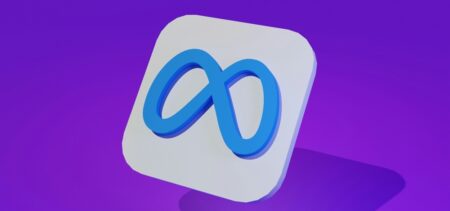According to The Guardian, OpenAI has recently launched GPT-4, a new version of the innovative AI system that powers ChatGPT. GPT-4 is believed to be more inventive, less prone to errors, and less partial to delivering certain responses when compared to its predecessor. However, it is worth noting that the previous model is generally considered a breakthrough, given its impressive achievement of attracting 57 million users in its first month. Moreover, Gitnux reports that ChatGPT continues to draw approximately 96 million monthly visitors.
ChatGPT is undoubtedly one of the most successful large language models ever developed. Its GPT-3.5 core has gained access to an extensive amount of text data, enabling the artificial intelligence (AI) chatbot to understand and generate human-like responses to questions or prompts. ChatGPT can also perform numerous language-related tasks, such as answering questions, summarizing information, translating, and writing essays. However, as Reuters points out, the widespread availability of the chatbot has raised concerns about the facilitation of academic dishonesty and misinformation. Notable US K-12 systems have prohibited the use of the AI chatbot, and marketers have also started expressing worries in this regard.
“For a small minority of folks, mostly in the marketing and advertising industries, the launch of ChatGPT resulted not in excitement, but in a more than healthy dose of anxiety and existentialism,” Redington CMO Puneet Chadha explained.
How To Leverage ChatGPT for Digital Marketing
Chadha further highlights that it is right to feel vulnerable to the current and future applications of ChatGPT, particularly for professionals in the marketing field. Language models like ChatGPT have immense potential when it comes to content creation. While marketers have initially regarded these new tools as exciting ways to better their work, they are now asking themselves if these tools could make their jobs redundant one day. However, to establish if and how language models will impact the future of digital marketing, marketers must identify how the industry can harness these tools.
Entrepreneur Media suggests that ChatGPT and other AI chatbots and large language models can be used successfully in digital marketing to improve customer engagement and deliver personalized experiences. These new tools can be leveraged in various ways:
- AI-powered chatbots like ChatGPT can engage with customers in real time, answer their questions, and even provide personalized recommendations. This enables businesses to reduce response time, avoid inappropriate queries, and improve overall customer satisfaction.
- Marketers can use AI-powered language models to create personalized content, such as product descriptions, email newsletters, and social media posts.
- Language models can analyze customer feedback, reviews, and social media posts to determine customer sentiment and identify emerging trends. This can help businesses update their offers, products, and services and build better relationships with their customers.
- AI-powered language models can also be used to translate content into multiple languages, making it easier for global businesses to expand and attract new customers.
Industries around the world are constantly evolving, and digital marketing is no exception. While new tools like ChatGPT are not perfect, they will undoubtedly shape the future of various industries, including digital marketing. According to Entrepreneur Media, monitoring the current uses and results of ChatGPT and updating digital marketing strategies have become essential. ChatGPT has the potential to change the digital marketing landscape in many ways over the next few years. However, while it and other similar tools could become integral components of digital marketing in the future, they cannot fully replace humans.
The Limitations of ChatGPT
There is no question that new technologies can significantly transform numerous industries, including digital marketing. However, ChatGPT and other language models are also constrained by their own limitations, which makes them unlikely to replace humans in this and other fields. Forbes magazine highlights several disadvantages, ranging from the chatbot’s failure to understand complex contexts to its reliance on partial data in lack of Internet access. It is only by assessing ChatGPT’s disadvantages and limitations that marketers can gain a complete understanding of its true potential. This can ultimately help them understand how ChatGPT and other similar language models could change the future of digital marketing.
Language models can understand and generate language, but they lack empathy and emotional intelligence, making it challenging for them to connect with customers at the same level as marketers or client service managers. Moreover, language models lack creativity and originality. Despite their capability to generate answers, texts, and even essays and poems, they cannot create entirely new ideas or concepts. Unlike them, marketers can use their creativity on a daily basis, constantly developing new strategies and campaigns. Furthermore, language models cannot replace human decision-making and strategic planning, both of which are quintessential part of developing effective marketing strategies.
According to Puneet Chadha, “ChatGPT is not coming for your jobs, but is still incredibly useful today in the right hands.” While language models like ChatGPT are likely to change the future of digital marketing, they will probably do so for the better.




































